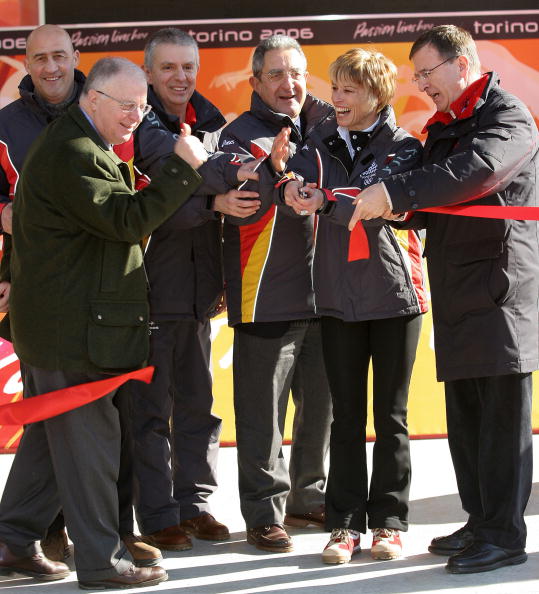A letter from Italy, from one of the most influential strategists in track and field, to Bob Hersh, currently an IAAF vice president, makes clear what many here in the United States fail to understand: Hersh is an eminently decent man but his time near the top at the IAAF has come to a close. Hersh should realize that.
“Personally,” writes Luciano Barra, whose career in track and field and Olympic circles has seen him both wielding and observing power and its nuances for decades, “I think that you are spoiling your career in the world of athletics trying to remain in the IAAF council also on this occasion,” a reference to this summer’s IAAF elections.
“Life goes for each of us and time is a severe judge. You are 75, the IAAF will have [drastic] changes in Beijing and you should have understood that this was the right time to leave in glory, being appointed IAAF honorary life vice president.”
Barra prefaces the entire letter by saying, “It was a pity that we did not find the possibility to speak in Prague,” at last weekend’s European indoor championships, and adds, “I must say that many of the things I am writing are shared by many people I spoke with in Prague.”
The letter is most notable because Barra, as Hersh would well know, is close — and has been for years and years — to IAAF insiders.
To recap just some of Barra’s resume:
He was general director of the Italian Olympic Committee from 1984 to 2003, its sport director the final 10 years. He was chief operating officer of the Torino 2006 Winter Games. He is an honorary life council member of the European Athletic Association and has been around track and field, and the organization of its events, virtually his entire life.
Barra is far from unfamiliar with the United States and Americans, incidentally. He served as an adviser to the Chicago 2016 Olympic bid.
It is amid all that context that he wrote Tuesday’s letter to Hersh, mindful that in Beijing either Seb Coe or Sergey Bubka will be elected IAAF president and that USA Track & Field will nominate a delegate to the IAAF spot.
In December, USATF opted not to re-up Hersh but to nominate Stephanie Hightower, the USATF chairwoman.
Within the U.S. track and field community, there continues to be misunderstanding about the dynamics of the 392-70 floor recommendation for Hersh and then the 11-1 board of directors vote for Hightower. A follow-up Feb. 7 board letter sought to explain why the board went the direction it did.
This letter from Barra ought to further make plain to those within the United States why Hightower is the choice.
To emphasize, Barra’s opinion not only matters; it reflects an important current of thinking in key IAAF circles that ought to be better understood in the United States, particularly with the USATF board meeting this weekend in Los Angeles.
Hightower is now 58. When he, Barra, was 58, he wrote, he retired after 18 years in the European athletics council because the Italian track and field federation had a new president and that new president wanted to represent Italy: “It was a normal ambition for him.”
“The same I did in the Italian Olympic Committee at 62 … after 15 years as sport director general (with 110 medals in five Olympics [as compared to] 55 … before) [so that I could become] deputy CEO of Torino 2006 Olympic Games.”
“For this reason,” Barra writes to Hersh, ”I cannot understand your position and your continuous quest of support also internationally. I do not know, and I do not want to know, the formal aspect of what has happened inside your federation, but if legally this has been possible, what can you say?”
Barra goes on:
“I have understood that you have been claiming the important achievement you have reached in these years inside the IAAF. Surely you have good score even if I have been critical on two of your main [activities]: the one of Technical Delegate and the one of Chairman of the Diamond League group.
“I do not want to come back on my e-mails about the time table you have ‘painted’ for Moscow and London, I am only happy to see that those who have taken the baton from you have not followed many of your ‘best practice.’ You know what I am talking about because I have written open letters on it.
“As far as the Diamond League is concerned you should know that many people in the World Athletics consider that activity as the [worst] ever run by the IAAF on many [points] of view. Financially [it] is not positive, from [a] television point of view [it] is even worse, but most of all [it] has allowed athletics to be totally in the hand of the managers. To pursue athletics based on money and records has also made the doping a major issue.
“You chaired a group in Marrakech to discuss about the need to make athletes recognize the one day meeting (the vest problem) and in spite of a report of many pages (43?) you were not able to arrive to any proposal. Should I go on?
“So why not finish in glory and take the positive aspect of what you have done? The alternative is to be challenged on the substance of what you have done, independently to the formal aspect of your queries.”
At the end the letter says, “PS it is possible that I will circulate my thought,” and indeed it is now circulating worldwide.


